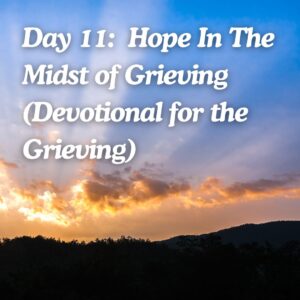 Bible Verse:
Bible Verse:
“The LORD is my shepherd; I shall not want. He makes me lie down in green pastures. He leads me beside still waters. He restores my soul.” – Psalm 23:1-3 (WEBBE)
Reflection:
Grief can make life feel heavy, leaving you feeling like you are wandering through a barren and endless desert. Your soul is thirsty for peace, rest, and renewal, but it seems out of reach. Yet, in the comforting words of Psalm 23:1-3, we find that God is not distant or indifferent to our pain. He is the Good Shepherd who knows exactly where we are and what we need.
“He makes me lie down in green pastures. He leads me beside still waters. He restores my soul.” This verse speaks of God’s desire to lead you to places of peace and comfort. When you feel weary from the weight of grief, God’s care brings you the rest and healing you need. He knows when your soul needs to be renewed, and He offers His presence to restore and strengthen you.
In moments of grief, it’s easy to feel as though there is no respite. But God’s promise is that He will guide you to a place of spiritual refreshment, where you can find peace and begin to heal. Even if you cannot see it now, He is guiding you through this difficult time, leading you to still waters and green pastures where your soul can find rest.
Trust in the promise that God is with you and is shepherding you through this season of grief. He will not let you go, and He will not allow you to lack what you need. Let Him be your guide today as you take small steps toward comfort and renewal.
Prayer:
Lord, my heart is heavy, and I feel lost in my grief. Thank You for being my Shepherd, for knowing my pain, and for guiding me even when I cannot see the way. I need Your rest and peace, Lord. Lead me beside still waters and restore my soul. Help me to trust in Your care and to find comfort in Your presence. Amen.
Course of Action for Today:
Take a moment to find a quiet place and imagine God leading you to a peaceful spot where you can rest. Close your eyes, take a few deep breaths, and envision lying down in a green pasture or sitting beside calm waters. Let this image be a reminder that God is guiding you to rest and renewal. Throughout the day, whenever you feel overwhelmed, pause for a brief moment to acknowledge God’s care and ask for His peace to fill your heart.
Reflection Question:
What small steps can you take today to let God’s care and guidance bring you comfort and renewal?



